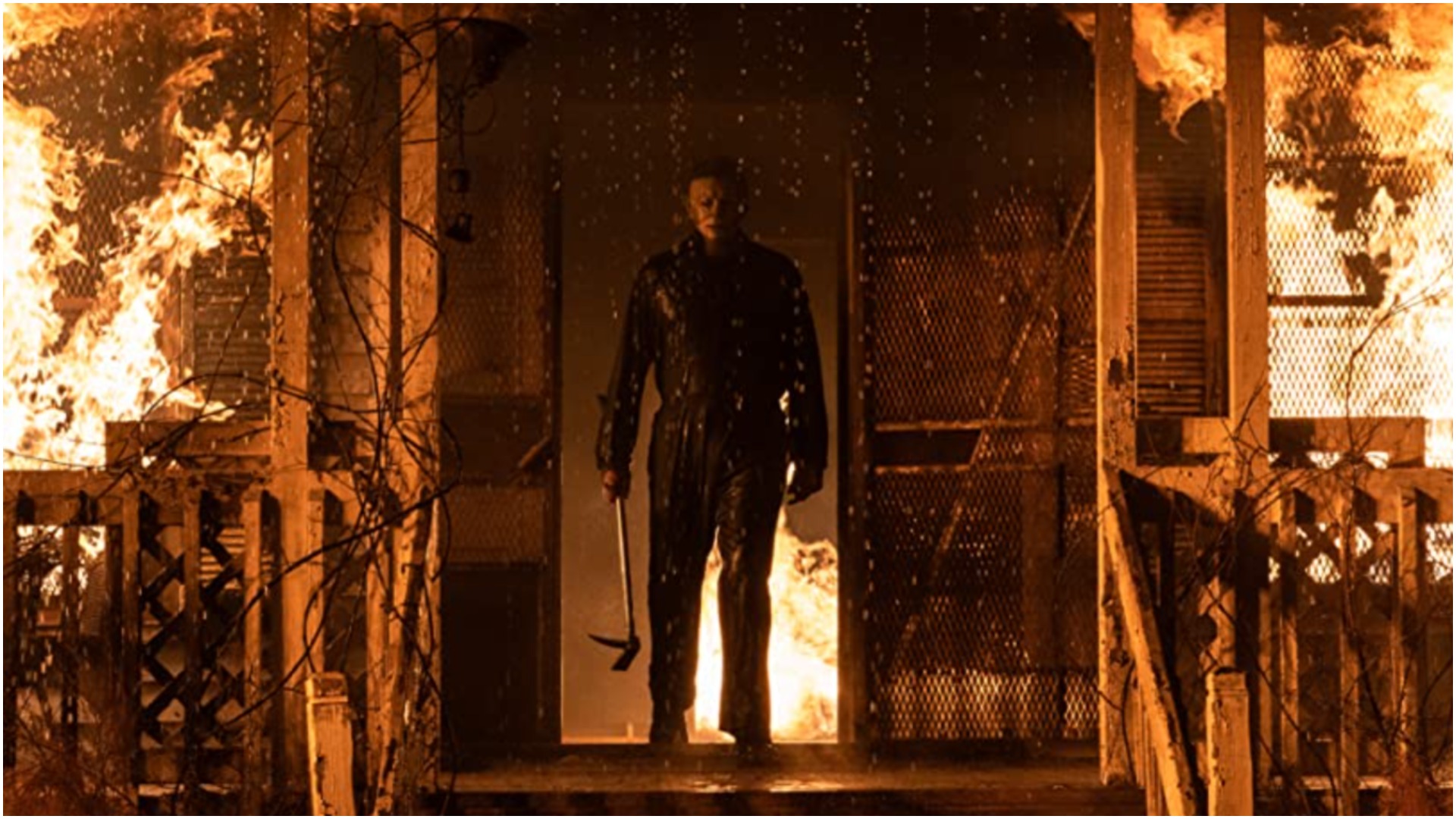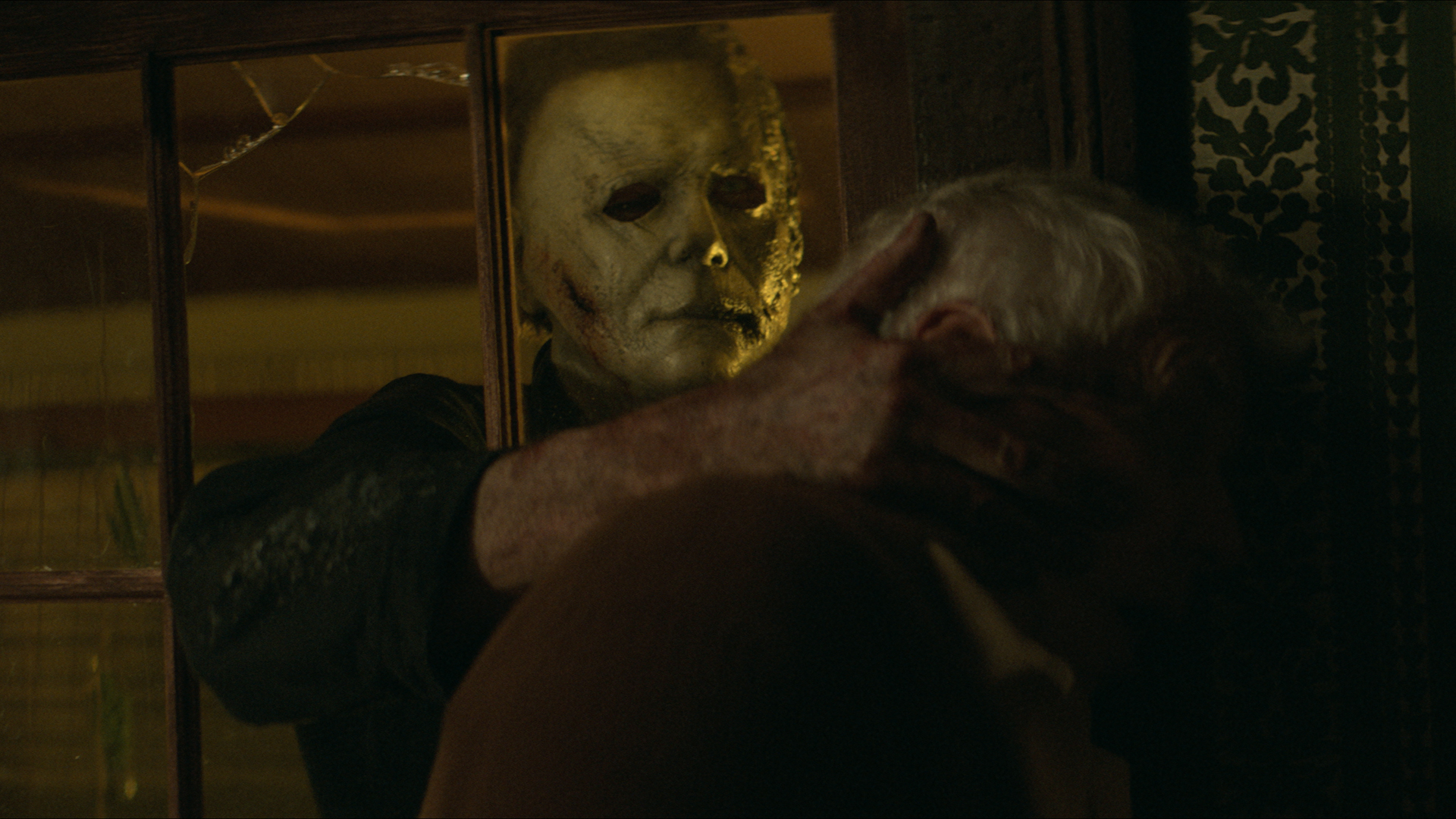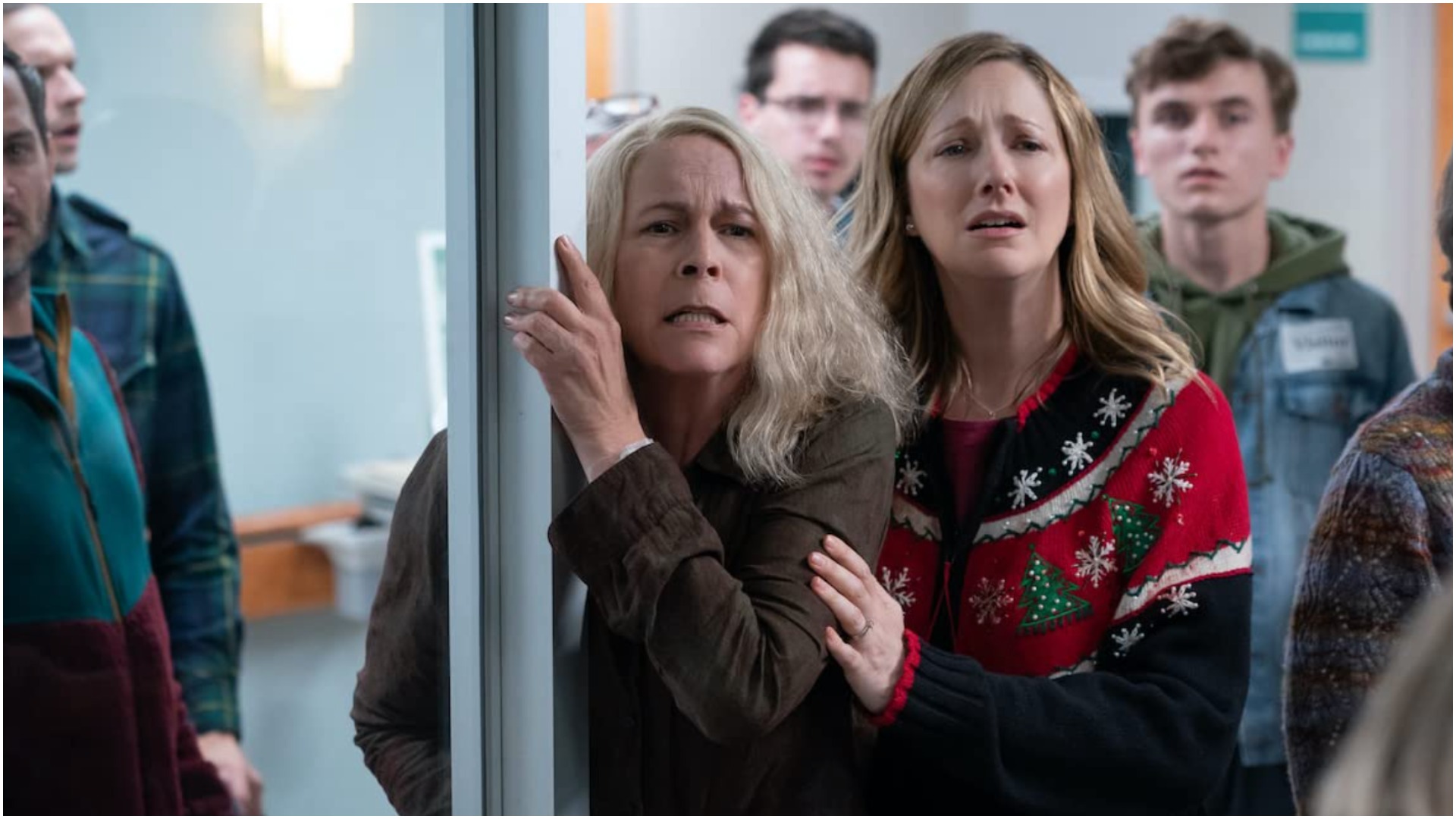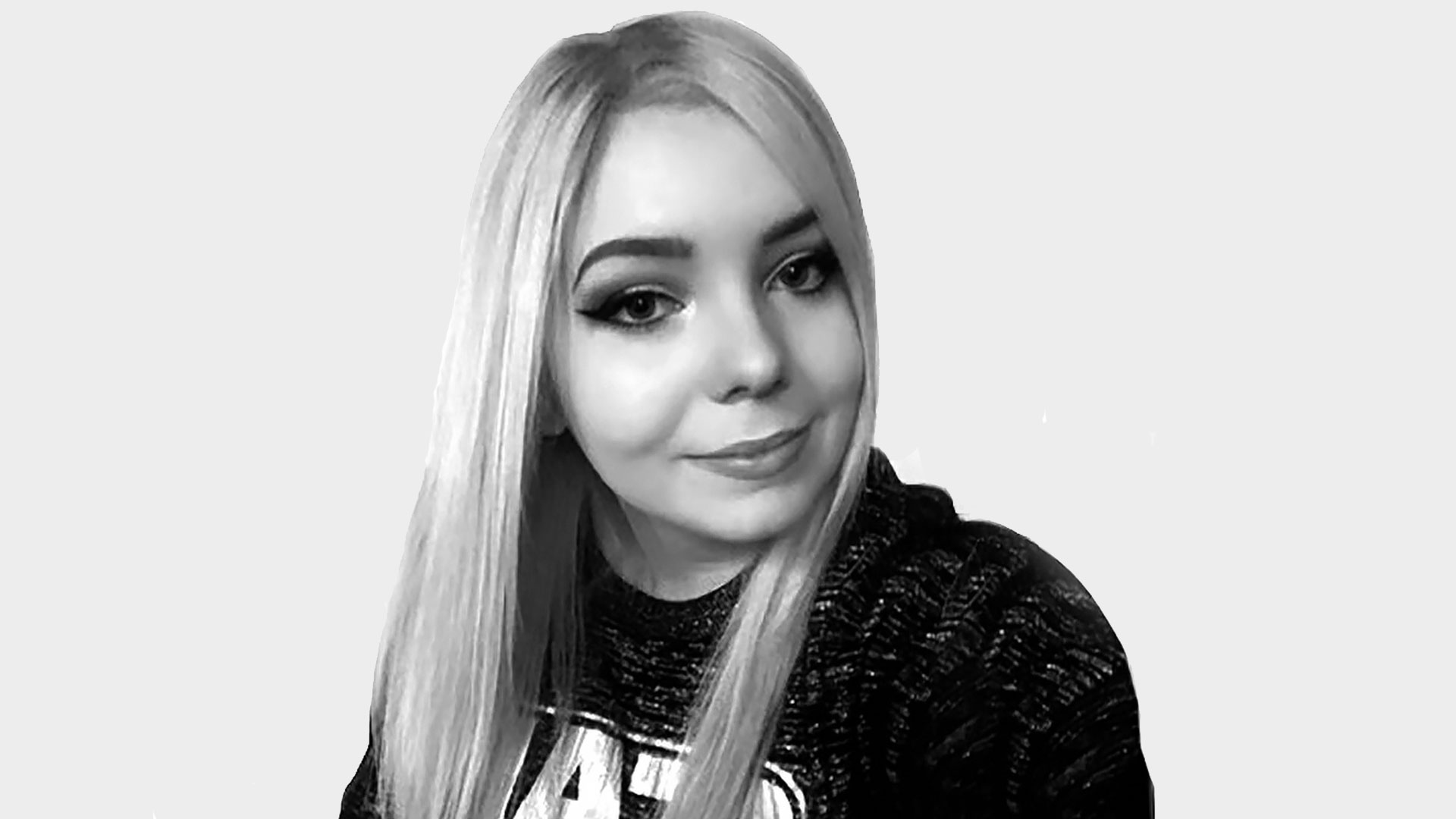Halloween Kills director reveals how John Carpenter shaped the movie and teases the threequel
Exclusive: David Gordon Green talks Halloween Kills, Michael Myers, and Halloween Ends

Michael Myers returns to our screens once more in Halloween Kills, with The Shape terrorizing Haddonfield in a rampage bloodier and far more brutal than we've ever seen from the masked killer before.
But this time around, the inhabitants of Haddonfield are fighting back. While Laurie Strode (Jamie Lee Curtis) is in hospital recovering from the injuries she sustained in her showdown with Michael in 2018's Halloween, her friends and family are taking the fight to The Boogeyman – including her daughter Karen (Judy Greer) and her granddaughter Allyson (Andi Matichak), returning from the previous film, and a host of familiar faces from the original '78 Halloween movie.
We sat down with director David Gordon Green to chat about the film, working with franchise maestro John Carpenter, the mythos behind Michael Myers, and what we can expect from the threequel Halloween Ends. Check out our spoiler-free conversation below, edited for length and clarity.
GamesRadar+: In Halloween Kills, Laurie is in hospital, badly injured, and a lot of the action is taking place outside. Why did you decide to separate her off from the main events?
David Gordon Green: Well, the Halloween franchise exists because of our good and evil – our Laurie Strode and our Michael Myers. The idea of this film was to create a portrait of Haddonfield as an entire community. To break apart [Laurie and Michael], essential pieces of DNA, and then see the worlds that spin around those essential ingredients, it was basically a great engine for us to meet a lot of people and bring back legacy characters from the '78 film and reintroduce characters that we'd brought onto camera in the 2018 film.
So, splitting them apart does two things: it creates those double universes to start revolving around each other, and then creating that anticipation of how they collide.
Was it important to you to show that mob justice isn't a good thing that's always going to work?
Sign up for the Total Film Newsletter
Bringing all the latest movie news, features, and reviews to your inbox
It just depends. I think some of the greatest moments in the Earth's history are getting a collective consciousness of prayer and positivity, and I think getting people together with a like-minded focus and intensity can be the most incredible show of a species. But then it also has the other side. And what Halloween Kills examines is the misinformation and the agitation of a group of people that don't have all the facts when they're jumping to judgment.
Halloween Kills does touch on the mythos and the mystique surrounding Michael Myers. What made you want to start exploring that now, as he's always been a big mystery?
In my mind, Michael is a spectacular and resilient human being that doesn't feel pain. If you get shot a couple of times in the shoulder, you're going down, you're going to the hospital. [But] as long as it's not anchoring him to the earth, Michael's going to get back up. If something was to take him out entirely, it could, but I think what the movie is trying to say is that, even if he was no more, is that the fear that he's generated, the anxiety that he's created from the actions that he's done, would live forever. I like to think the shark in Jaws has kept millions of people out of the ocean in our cultural reality, because of a movie they saw in the '80s. Michael, in Laurie's mind, has transcended from just being a stalker of a little boy that murdered his sister to a community-wide event in Haddonfield. In our mythology, he hasn't necessarily gone nationwide yet. But I think for her, she's just saying that even if you take him down, you can't take him out.

In this movie you had John Carpenter back working on the score. Did you have a lot of conversations with him while you were making the movie? Did he have any advice or thoughts to offer on the direction it was going?
Yes, I love showing him the script. In fact, I gave him the new draft of Halloween Ends a couple of nights ago, and so I eagerly await his feedback. More often than not, it's inspiring and informative. He'll say things like, in a sequence, 'Slow it down, take the dialogue out, let it breathe.' Or he'll say, 'Speed it up, make it relentless.' His music does both of those things, too. You'll see sometimes it's very methodical and slow-paced and pulsating. Other times, it's just a frenzy of synthesizers.
And so I love getting his advice on the script. I very often watch him watch the cuts. He composes with his son Cody [Carpenter] and [musician] Daniel Davies. I show them scenes at a very vulnerable time for me. It takes a while until I'm confident in the cut, but I'm not going to be confident until I hear the music to some degree. I'll know I have it structurally or the performance is good, but I'm not going to really feel like I'm in a Halloween movie until John Carpenter gets his hands all over it.
I appreciate that, and as a collaborator, it's just incredible to think about working with someone that, if I was a 10-year-old boy and you told me that I was going to be working with John Carpenter on a movie and he was going to do the music, and it was with the characters from Halloween, and Jamie Lee Curtis would put her hand on my shoulder when I'm having a bad day, these are spectacular childhood fantasies that would never in a million years come true for someone like me. But yet, they have.
You mentioned Halloween Ends just now. This film tackles mob justice, and it's a collective. Can we expect another shift in focus ahead of us, back to a one-on-one showdown between Laurie and Michael, or are we headed into something else entirely?
I think those themes that you're alluding to will be a part of it, but we're heading in a very different direction for our third chapter.

You mentioned the script as well, is that finished now, or are you still working on it?
It's finished for now – until I wake up tomorrow and have some other idea that I want to mess around with. I'm always open to reinvention, I'm always open to discovery, and when we're filming this, I know that an element of casting will either be way better than I expected or not as good as I'd hoped, and so then I'll pivot and I'll do this instead of that. And it is, to some degree, it's conception, but then it's also playing jazz and being able to freestyle when you need to or there's an opportunity, and so I love being open that way.
I'm ecstatic about the ending, like the last three pages. I can see it, and I want to breathe it right now. But, the boom operator may come up to me with an idea and says, 'But what if this happened?' And I'll be like, 'Ah yes, I get all the credit for his genius.'
Halloween Kills releases in theaters and on Peacock in the US this October 15, and hits UK cinemas the same day. In the meantime, check out our guide to the next few months' major movie release dates.

I'm a Senior Entertainment Writer here at GamesRadar+, covering all things film and TV for the site's Total Film and SFX sections. I previously worked on the Disney magazines team at Immediate Media, and also wrote on the CBeebies, MEGA!, and Star Wars Galaxy titles after graduating with a BA in English.


